Uppada Vishnu
MTLTS: A Multi-Task Framework To Obtain Trustworthy Summaries From Crisis-Related Microblogs
Dec 10, 2021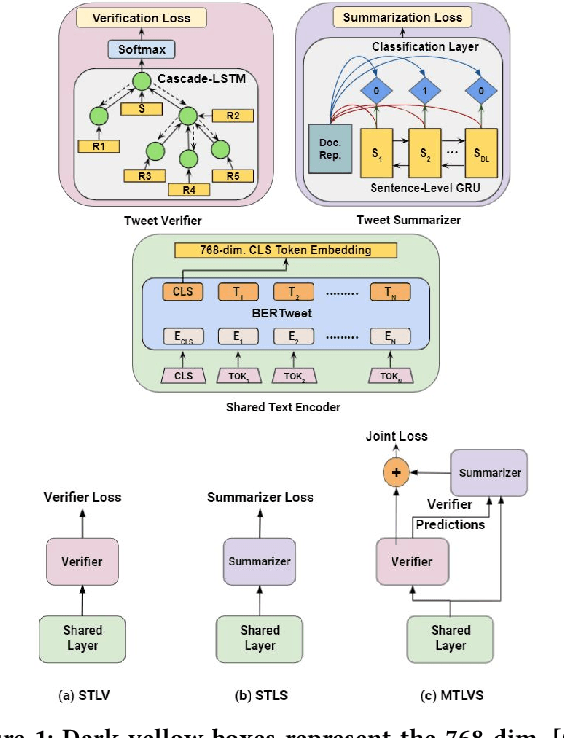

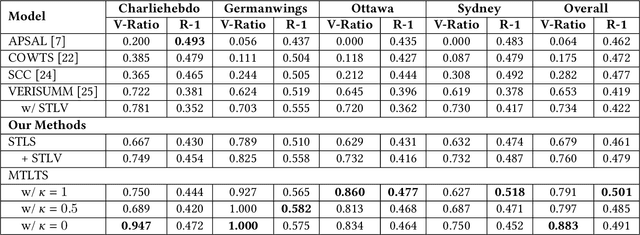
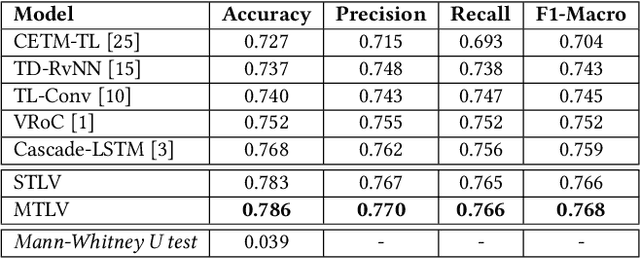
Abstract:Occurrences of catastrophes such as natural or man-made disasters trigger the spread of rumours over social media at a rapid pace. Presenting a trustworthy and summarized account of the unfolding event in near real-time to the consumers of such potentially unreliable information thus becomes an important task. In this work, we propose MTLTS, the first end-to-end solution for the task that jointly determines the credibility and summary-worthiness of tweets. Our credibility verifier is designed to recursively learn the structural properties of a Twitter conversation cascade, along with the stances of replies towards the source tweet. We then take a hierarchical multi-task learning approach, where the verifier is trained at a lower layer, and the summarizer is trained at a deeper layer where it utilizes the verifier predictions to determine the salience of a tweet. Different from existing disaster-specific summarizers, we model tweet summarization as a supervised task. Such an approach can automatically learn summary-worthy features, and can therefore generalize well across domains. When trained on the PHEME dataset [29], not only do we outperform the strongest baselines for the auxiliary task of verification/rumour detection, we also achieve 21 - 35% gains in the verified ratio of summary tweets, and 16 - 20% gains in ROUGE1-F1 scores over the existing state-of-the-art solutions for the primary task of trustworthy summarization.
Read what you need: Controllable Aspect-based Opinion Summarization of Tourist Reviews
Jun 09, 2020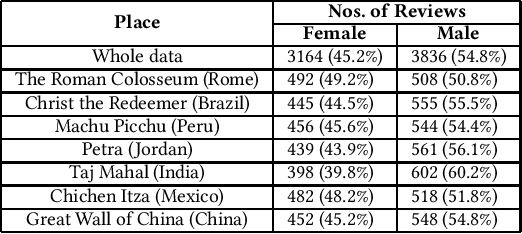
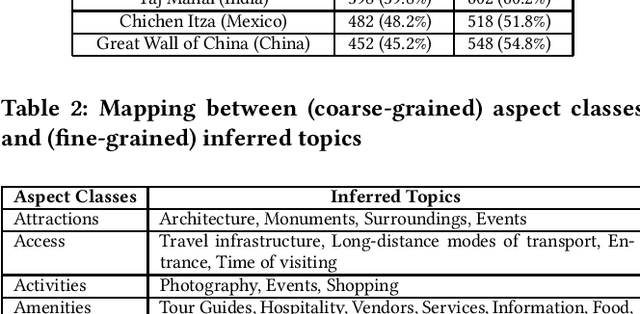
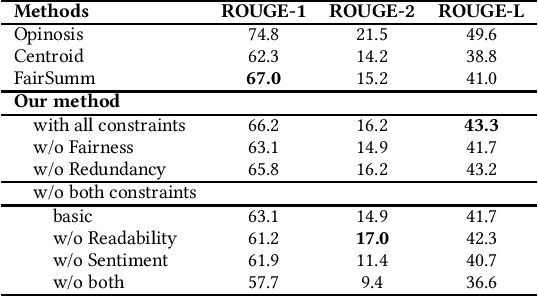

Abstract:Manually extracting relevant aspects and opinions from large volumes of user-generated text is a time-consuming process. Summaries, on the other hand, help readers with limited time budgets to quickly consume the key ideas from the data. State-of-the-art approaches for multi-document summarization, however, do not consider user preferences while generating summaries. In this work, we argue the need and propose a solution for generating personalized aspect-based opinion summaries from large collections of online tourist reviews. We let our readers decide and control several attributes of the summary such as the length and specific aspects of interest among others. Specifically, we take an unsupervised approach to extract coherent aspects from tourist reviews posted on TripAdvisor. We then propose an Integer Linear Programming (ILP) based extractive technique to select an informative subset of opinions around the identified aspects while respecting the user-specified values for various control parameters. Finally, we evaluate and compare our summaries using crowdsourcing and ROUGE-based metrics and obtain competitive results.
 Add to Chrome
Add to Chrome Add to Firefox
Add to Firefox Add to Edge
Add to Edge